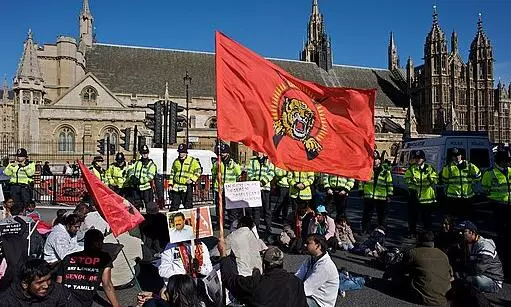
- Home
- India
- World
- Premium
- THE FEDERAL SPECIAL
- Analysis
- States
- Perspective
- Videos
- Sports
- Education
- Entertainment
- Elections
- Features
- Health
- Business
- Series
- In memoriam: Sheikh Mujibur Rahman
- Bishnoi's Men
- NEET TANGLE
- Economy Series
- Earth Day
- Kashmir’s Frozen Turbulence
- India@75
- The legend of Ramjanmabhoomi
- Liberalisation@30
- How to tame a dragon
- Celebrating biodiversity
- Farm Matters
- 50 days of solitude
- Bringing Migrants Home
- Budget 2020
- Jharkhand Votes
- The Federal Investigates
- The Federal Impact
- Vanishing Sand
- Gandhi @ 150
- Andhra Today
- Field report
- Operation Gulmarg
- Pandemic @1 Mn in India
- The Federal Year-End
- The Zero Year
- Science
- Brand studio
- Newsletter
- Elections 2024
- Events
- Home
- IndiaIndia
- World
- Analysis
- StatesStates
- PerspectivePerspective
- VideosVideos
- Sports
- Education
- Entertainment
- ElectionsElections
- Features
- Health
- BusinessBusiness
- Premium
- Loading...
Premium - Events

Britain is acting against Colombo to pander to a domestic constituency, the Tamil diaspora of Lankan origin, sections of which remain wedded to LTTE ideology
Britain has become the third Western country to sanction select Sri Lankans for war crimes committed during the civil war in the island nation which ended 16 years ago. One can say with certainty that the decision will help neither Sri Lanka nor its Tamil minority.
Brazen hypocrisy coupled with domestic political factors are the main reasons the UK has moved against former Sri Lankan army commanders Shavendra Silva and Jagath Jayasuriya, former navy commander Wasantha Karannagoda, and former LTTE leader Vinayagamoorthy Muralitharan alias Karuna.
The sanctions consist of asset freezes and travel bans. The action follows years of sustained pressure mounted by rights activists in Sri Lanka and abroad as well as Tamil activists, particularly those still allied to the separatist ideology of the Liberation Tigers of Tamil Eelam (LTTE).
American, Canadian sanctions
Silva, who led the 58th army division that helped to annihilate the LTTE and its leadership in 2009, and Karannagoda, who was the navy commander in 2005-09, were among several Sri Lankans sanctioned in 2020 by the US for serious rights abuses. Both Silva and Karannagoda and their families are barred from travelling to the US.
Also read: Book excerpt: How Prabhakaran’s obsession with power destroyed the LTTE
Three years later, in 2023, Canada sanctioned four Sri Lankans for being directly responsible for atrocities committed during the armed conflict.
They included Mahinda Rajapaksa and his younger brother Gotabaya Rajapaksa. While Mahinda was the president of Sri Lanka when the LTTE was militarily crushed, Gotabaya was the defence secretary and oversaw the war against the Tamil Tigers. Gotabaya later became the country’s president.
Ottawa froze their assets, barred their access to financial services, and deemed them inadmissible to Canada.
Visible departure
A visible departure in the UK announcement was the inclusion of Karuna, a Tamil and the former eastern regional commander of the LTTE, who broke away from the Tigers in 2004. His defection, along with hundreds loyal to him, played a key role in the subsequent military reverses suffered by the LTTE, eventually leading to its destruction.
Also read | ‘Jaffna’ back in cultural centre’s name alongside ‘Thiruvalluvar’ after anti-India fury
Did war crimes take place in Sri Lanka during the end stages of the prolonged armed conflict between the LTTE and Colombo? The unequivocal answer is yes. While some brutalities and atrocities have been documented, many have not been.
There is no doubt that the punishing military offensive against the increasingly depleted LTTE in 2009 also claimed the lives of many non-combatant Tamils, whose only crime was that they were holed up in the rapidly shrinking Tamil Tiger zone.
Audacious violations
But this is only one aspect of a deeply unfortunate saga and one of the most horrific civil wars seen in the current century.
The fact is that both the armed adversaries – the Sri Lankan military and the LTTE – audaciously violated human rights and killed innocents. Both tortured prisoners in their custody.
At one level, both had disdain for human life. But it is interesting that Western governments focus constantly on Sri Lankan government personnel and never on the LTTE.
Also read: Ex-LTTE fighters trying to revive militant group in Sri Lanka: Report
It is ominously interesting that the British sanction describes Karuna as a former LTTE commander who “subsequently created and led the paramilitary Karuna group, which worked on behalf of the Sri Lankan Army”. In other words, Karuna is being split into two halves, and being targeted for activities following his exit from the LTTE.
Karuna's role
Anyone who knows even at a basic level of what happened in Sri Lanka is aware that Karuna for long years was a blue-eyed boy of LTTE founder leader Velupillai Prabhakaran. He was responsible, as Prabhakaran’s confidant, for massacring hundreds of Sri Lankan policemen who surrendered to the LTTE in 1990 and the later mass killings of Muslims in Batticaloa.
Karuna then functioned under Prabhakaran’s leadership and came to the latter’s military rescue whenever the army mounted menacing advances into rebel territory.
Focussing on Karuna’s post-LTTE record while ignoring whatever he did when he was a part and parcel of the Tamil Tigers is the clearest proof that Britain has acted against Colombo to pander to a domestic constituency, the Tamil diaspora of Sri Lankan origin, sections of which remain wedded to the LTTE ideology.
Also read: Ground report: Economic crisis eases but inflation still bites Sri Lankans
Complicated story
Yes, Sri Lanka very much needs national reconciliation and accountability for past wrongdoing. But its troubled history doesn’t have clear black and white phases. It is a complicated story.
The ugly fact is that Sri Lanka’s first known cases of mass atrocities were committed not on the Tamils but against members of the majority Sinhalese community.
This was when Colombo brutally put down an armed uprising by the leftist Janatha Vimukti Peramuna (JVP) in 1970-71 and again in 1987-89. Thousands, many of them innocent, were killed on both sides of the horrific showdown. Like the LTTE, the JVP, particularly during its second insurrection, also indulged in extreme cruelty.
Sri Lanka’s present president, Anura Dissanayake, is from the JVP.
The other side
The Sri Lankan military’s high-handed methods against the LTTE and other Tamil militant groups are widely recorded. Precisely for this reason, they need not be repeated here.
But it should never be overlooked that the LTTE too killed at will, often unarmed non-combatants (Tamils, Sinhalese and Muslims), ousted thousands of Muslims from Jaffna with just their clothes on, forcibly enlisted hundreds of children from impoverished Tamil families to fight its war, degraded and tortured its prisoners, often executing them on concocted charges, and indulged in sexual violence when it put down Karuna’s rebellion in Batticaloa in 2004.
Also read | Should Sri Lankan Tamils mourn Prabhakaran on his death anniversary?
Western hypocrisy
The reason Western governments, supposedly acting in good faith and for the alleged good of Sri Lanka, do not move against the LTTE is that its most vocal and faithful loyalists today live in the West and are valuable voters.
Western foreign ministries and intelligence agencies never shackled the LTTE even after it assassinated former Indian Prime Minister Rajiv Gandhi in 1991 and Sri Lankan President Ranasinghe Premadasa in 1993. Would the West have been so indulgent had the LTTE murdered an American president or a former British prime minister?
All this does not mean that successive Sri Lankan governments can use Western hypocrisy as an excuse not to bring about a genuine national reconciliation, a process which will first require Colombo to accept that grave wrongs were committed during the civil war and even earlier.
'Us and them' syndrome
Sri Lanka must pay compensation to Tamil and Sinhalese families whose members died or disappeared for no fault of theirs, even without proven involvement of JVP/LTTE links. The government must help those who continue to suffer mental and physical trauma. It won’t be an easy process because decades of horrific violence have created an “us” and “them” syndrome in Sri Lanka.
While it is true that some senior LTTE members who tried to surrender in 2009 were killed in cold blood, some 12,000 LTTE fighters who gave themselves up were taken prisoner and underwent official “rehabilitation”.
In other words, Sri Lanka did not kill every Tamil and every LTTE fighter.
Many such ex-LTTE cadres shudder at their own past. It is the pro-LTTE Tamil diaspora which wants to keep the embers of Tamil separatism alive.
Western governments must desist from turning them from becoming the Sri Lankan equivalent of India’s Khalistanis.


